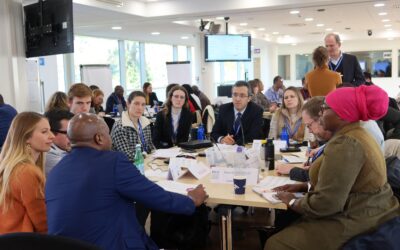The Freedom from Slavery Forum is pioneering new ground this year as the anti-slavery movement’s premiere thought-leadership convening. For the past eight years, the Forum has been a collegial space for anti-slavery leaders from around the world to coalesce, create partnerships, discuss promising practices, and develop a shared agenda for action.
Now, the Forum is adding five regional convenings to ensure that grassroots ideas and voices are instrumental in and foundational to the movement. The new regional approach allows the Forum to be a better reflection of the modern anti-slavery movement and put the focus on equity, democratization, and inclusion — ethos that have long been the foundation of the movement itself.
This was evident in the Africa regional forum earlier this month, “Resilience and Resistance to Modern Slavery: Key Priorities for Africa.” Focusing on experts and organizations from the continent, each day’s virtual programming centered around a different theme, starting with local issues, and increasingly zooming out to global ones.
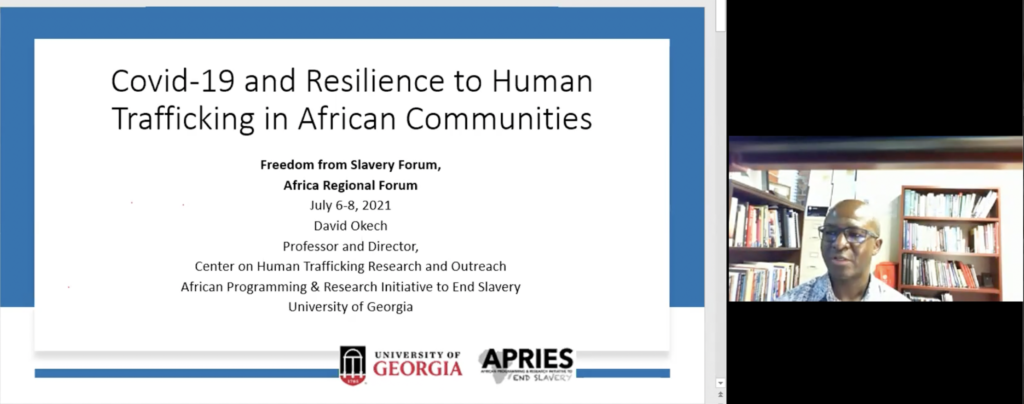
Day One’s sessions contemplated “How COVID-19 has impacted resilience to modern slavery in African communities.” Dr. David Okech, Director of the African Programming and Research Initiative to End Slavery (APRIES) at the University of Georgia, began with a keynote address sharing COVID-19’s impact on human trafficking, services, and research in Africa as well as innovative methods for ensuring resilience. Then, Dr. Alison Gardner and Dr. Phil Northall of Rights Lab at the University of Nottingham presented the findings of their joint research project with Free the Slaves, a recent study conducted in Kenya and Senegal on the effects of the pandemic on resilience to modern slavery in both countries.
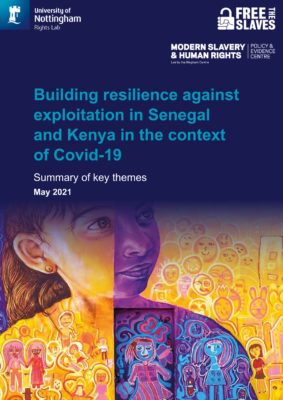
A conversation followed with four Senegalese and Kenyan stakeholders who contributed their expertise to the study, moderated by Maryana Munyendo, founder of Missing Child Kenya. Finally, participants were grouped by region to explore the specific vulnerabilities they face in their work and how COVID has impacted them. They then shared the outcomes of their discussions with the wider group.
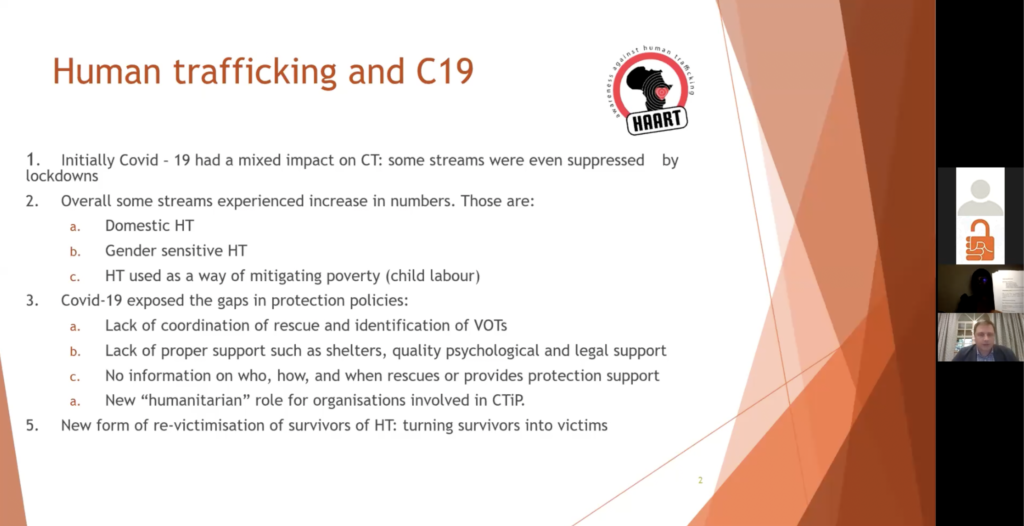
Day Two zoomed out to the regional level, and participants discussed “Strengthening Africa’s anti-slavery efforts” with an emphasis on survivor engagement. Participants heard from three survivors who recounted their experiences with modern slavery and shared their insights on what the movement needs to prioritize, setting the tone for the rest of the day’s sessions. Following the keynotes, Evelyn Chumbow, a survivor of child labor trafficking turned anti-trafficking activist and Free the Slaves board member, moderated a panel discussion where civil society organizations and policy leaders working in the anti-trafficking space were able to share their experiences interacting with survivors, especially how to ensure survivor voices and needs are incorporated into their work. Panelists included: Abena Annobea Asare, Director at the Human Trafficking Secretariat under the Ministry of Gender, Children and Social Protection in Ghana; Honorable Alexis Bahunga, the provincial deputy of North Kivu, DRC; Agnes Igoye, survivor and Uganda’s deputy national coordinator for the prevention of trafficking in persons; Me. Andrews Kananga, Executive Director of the Legal Aid Forum – Rwanda; and Radosław Malinowski, founder of HAART Kenya. After hearing from survivors and best practices for engaging with them, participants split into smaller workshops to discuss how they have incorporated survivor engagement and survivor-led programming and advocacy into their work and to learn from their peers. This session allowed participants to become more aware of the value survivors can bring to their work, and how to engage them meaningfully, respectfully, and without tokenism.
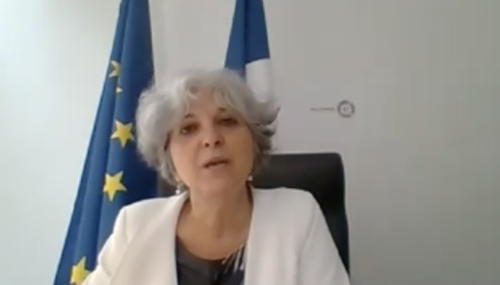
Day Three focused on global threats and connecting the anti-slavery work being done in Africa with the global movement around the theme of “Beyond Africa: Threats and solutions beyond the continent.” Ms. Anousheh Karvar, Chair of Alliance 8.7, delivered a keynote address highlighting that the global issue of modern slavery needs a global solution, driven by civil society organizations continuing to press for change, policy reform, and the ratifications or treaties and conventions at the local level. The final panel discussion, moderated by Lawrenta Igoh, an anti-human trafficking advocate from Nigeria, centered around global factors that exacerbate modern slavery, such as, migration, technology, and a global economy, and highlighted areas for movement response. Ruth Juliet Nyambura Gachanja, an Advocate of the High Court of Kenya, shed light onto areas of intervention for border crossings on both a CSO and a policy level as well as areas for regional cooperation. Marcellino Ramkishun, Regional Thematic Specialist for Immigration and Border Management at the International Organization for Migration (IOM), shared insights on the issues of transnational organized crime and migrant smuggling exacerbated by globalization. Murairi Bakihanaye Janvier, executive secretary of the Coalition des organisations de la société civile anti-esclavage in the Democratic Republic of Congo, spoke on how the digital revolution and increased internet access is contributing to exploitation and modern slavery that defies national borders. Janet Butler, Vice President Africa Region & the Caribbean at United Way Worldwide, provided an analysis of a study working to map the human trafficking landscape in Africa, which focused on Nigeria, Ghana, Kenya, and South Africa. Alice Eckstein, Project Director of Delta 8.7, shared information about the collaborative research project Delta 8.7 undertook to create a series of policy guides focusing on justice, crisis, and markets. The final workshop of the Forum was dedicated to cultivating a list of regional priorities that would be discussed at the Forum’s global convening or organizations leaders occurring in Marrakesh, Morocco from December 6-8, 2021.
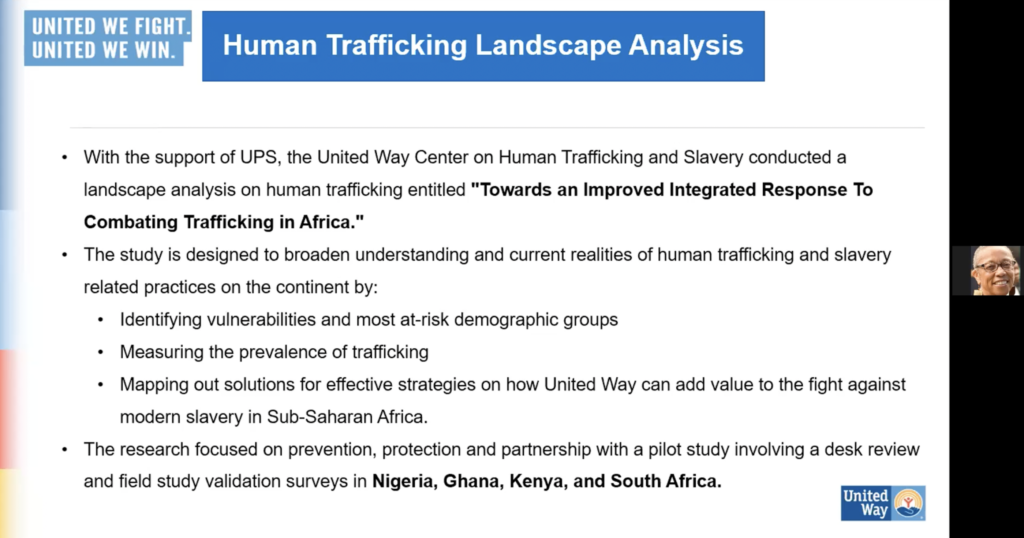
Participants left the Africa Forum with increased knowledge about how COVID-19, climate change, migration, and globalization are directly affecting root causes of slavery in Africa, possible solutions, and new partnerships to put those ideas into action. After attending all three days of the Africa Regional Forum, it is our hope that participants are now re-inspired to tackle modern slavery from multiple angles and in new innovative ways.
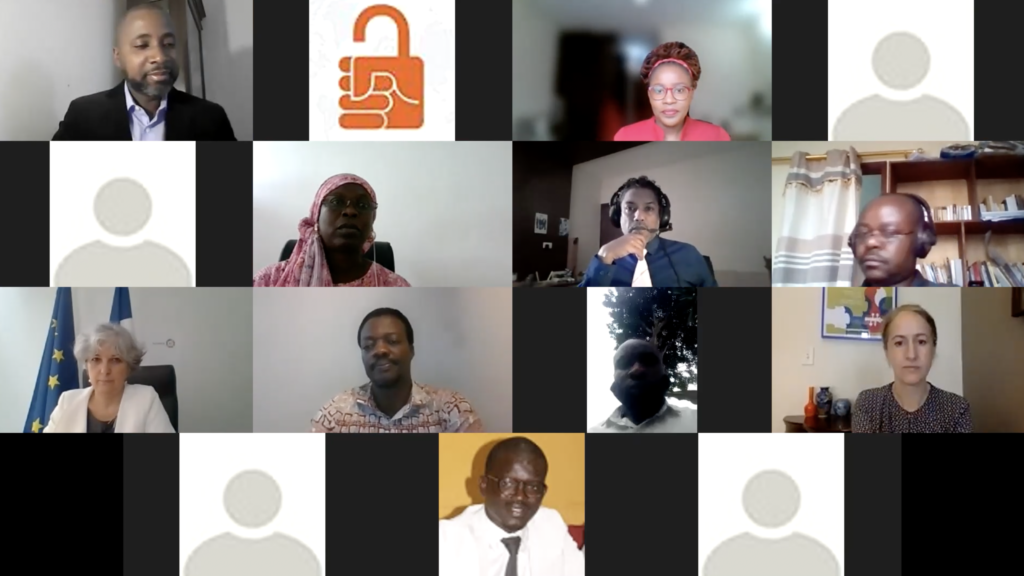
The Africa virtual meeting was the first in a series of regional Freedom from Slavery Forums, which will take place throughout the rest of the year. The Asia Regional Forum will take place from August 10-12, the Latin America Regional Forum will take place in early September, followed by the Middle East & North Africa in October, and North America, the Caribbean, and Europe in November. To continue following along with each regional Forum, please watch the Forum website and follow us as we live tweet each event at @FFS_Forum. We hope you will join in the conversation!
Free the Slaves serves as the Forum secretariat.

